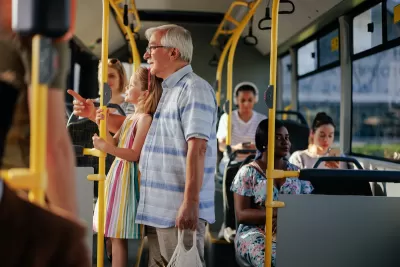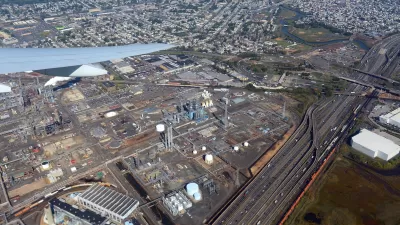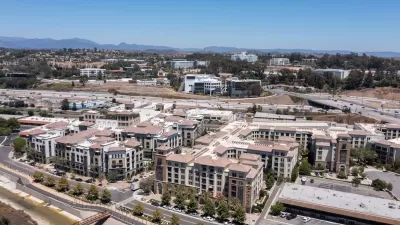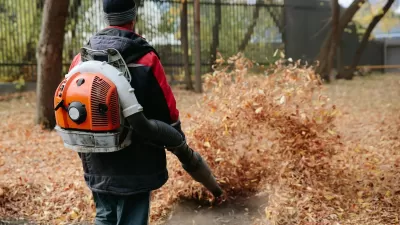A medical student calls for improving public transit to boost the health of people and the environment.

In an opinion piece in The Equation, Harvard medical student Aroub Yousuf argues that access to public transit is key to improving public health. In addition to greenhouse gases, “Conventional cars, trucks and buses also emit fine particulate matter, volatile organic compounds, carbon monoxide, and sulfur dioxide, all of which are associated with respiratory irritation, infection, and chronic disease.”
As Yousuf explains, “I see the direct impact that this cocktail of pollutants has on the increasing severity of respiratory conditions in patients, all while knowing that this same source of pollution is destroying the health of the planet.”
Yousuf notes that public transportation has the potential to keep people healthier, both by reducing harmful emissions and by leading to more physical activity in getting to and from stations and “increased access to public transportation has been shown to improve mental health outcomes in older adults, decreasing feelings of social isolation.”
Yousuf calls on public officials to invest in public transit and view it as a public good rather than a for-profit enterprise. “Investing in reliable, accessible transit service is essential—not only to the 10 million US households who don’t own a vehicle, but also as the bedrock for thriving communities and a better quality of life for all.”
FULL STORY: Investing in Public Transit Is Investing in Public Health

Study: Maui’s Plan to Convert Vacation Rentals to Long-Term Housing Could Cause Nearly $1 Billion Economic Loss
The plan would reduce visitor accommodation by 25,% resulting in 1,900 jobs lost.

North Texas Transit Leaders Tout Benefits of TOD for Growing Region
At a summit focused on transit-oriented development, policymakers discussed how North Texas’ expanded light rail system can serve as a tool for economic growth.

Why Should We Subsidize Public Transportation?
Many public transit agencies face financial stress due to rising costs, declining fare revenue, and declining subsidies. Transit advocates must provide a strong business case for increasing public transit funding.

How to Make US Trains Faster
Changes to boarding platforms and a switch to electric trains could improve U.S. passenger rail service without the added cost of high-speed rail.

Columbia’s Revitalized ‘Loop’ Is a Hub for Local Entrepreneurs
A focus on small businesses is helping a commercial corridor in Columbia, Missouri thrive.

Invasive Insect Threatens Minnesota’s Ash Forests
The Emerald Ash Borer is a rapidly spreading invasive pest threatening Minnesota’s ash trees, and homeowners are encouraged to plant diverse replacement species, avoid moving ash firewood, and monitor for signs of infestation.
Urban Design for Planners 1: Software Tools
This six-course series explores essential urban design concepts using open source software and equips planners with the tools they need to participate fully in the urban design process.
Planning for Universal Design
Learn the tools for implementing Universal Design in planning regulations.
City of Santa Clarita
Ascent Environmental
Institute for Housing and Urban Development Studies (IHS)
City of Grandview
Harvard GSD Executive Education
Toledo-Lucas County Plan Commissions
Salt Lake City
NYU Wagner Graduate School of Public Service





























